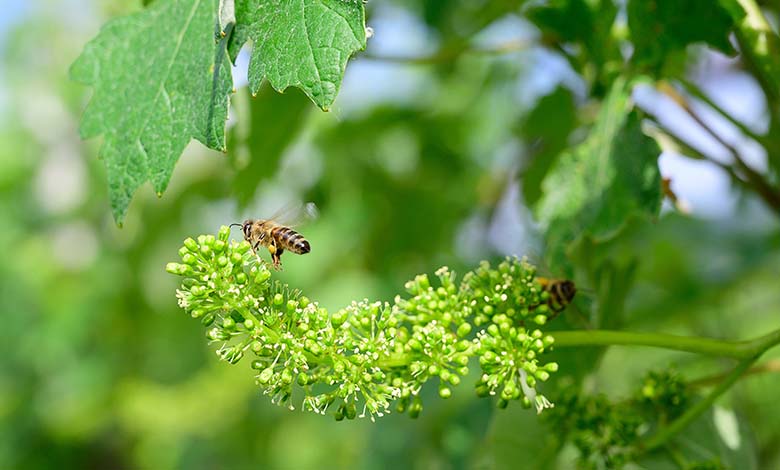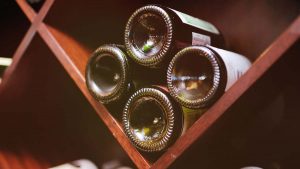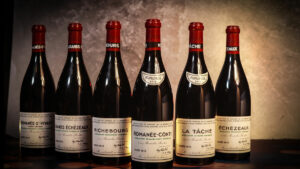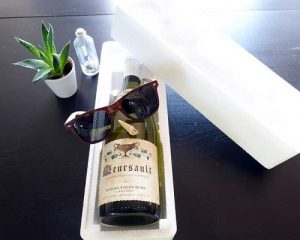
Bordeaux in green
Iconic and unmisable grands crus for your collection; the first Grand Cru Classé B such as the 2019 Domaine de La Mondotte from and 2016 Château Canon La Gaffelière are absolute favourites! Château Pontet Canet has been certified biodynamic since 2010 and can be found in various collectors’ formats, including magnum, jeroboam and methuselah. Chateau Clos Puy Arnaud, a 2019 magnum and Chateau Haut Bages Libéral, a 2018 fifth growth, will also brighten your cellar.
Eclectic Burgundy
Organic, biodynamic and natural wines in Burgundy? The region isn’t short of them, whether from prestigious maisons or more affordable domains!
With its carefully tended soils and optimally maintained ecological balance, Burgundy offers a diversity of biodynamic wines that never ceases to amaze us. We open with the whites, the Marquis d’Angerville estate offers a rich and dense 2018 Meursault Premier Cru Santenots that you will not be able to resist. In the same vintage, La Vougeraie offers its Puligny-Montrachet Premier Cru Champ Gain, which is fresher in style. The “stars” of Pinot Noir are also in the spotlight. Signatures such as Lucien Le Moine’s 2015 Clos de Vougeot Grand Cru and Jean-Louis Trapet’s 2011 Chambertin Grand Cru are must-haves for your cellar…
A selection that ends on a “natural” note, Jonathan Purcell’s 2020 vintage Gueule d’Amour and Chanterêves’ 2020 Les Tuyaux Nuits Saint-Georges are both characterful and extremely pure.
From the Jura to Alsace
Legendary biodynamic Savagnins are to be discovered through numerous domains such as the 2007 Château d’Arlay, a marc de savagnin in a small 50cl container. Jean Bourdy’s Côtes du Jura yellow wine in a 62cl container is another example from the same vintage. For collectors wishing to age their Savagnin, the 2019 Arbois from the Domaine du Pélican will bolster your collection nicely! Finally, there is a surprise in store with La Croix des Batailles, a natural Jura Gamay from Anne and Jean François Ganevat.
Let’s go to Alsace, where we find a certain generosity when t comes to organic and natural produce. In organic farming, the 2017 Pfersigberg Riesling from Emile Beyer delivers a beautiful expression of freshness, as does that of the Agathe Bursin estate, a grand cru Zinnkoepflé, from 2019’s late harvest. Biodynamic and natural are the key words that describe these two unexpected cuvées; Jean Ginglinger’s Pinot Noir from 2018 and Le Rêveur’s 2020 orange wine.
Champagne, an unexpected finale
Produced using organic methods, Etienne Calsac’s cuvée made from forgotten grape varieties is a fine demonstration of personality… and originality! Finally, if you’re looking for some food pairings, beautiful bottles such as Vincent Laval’s Premier Cru Brut Nature or Erik de Sousa’s Extra Brut will go perfectly with your scallop carpaccio or your salmon tartar.
Find the full selection of organic, biodynamic, and natural wines here



